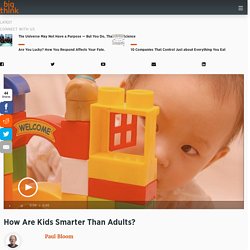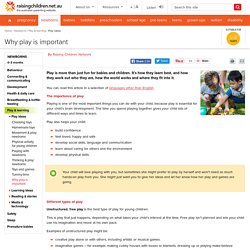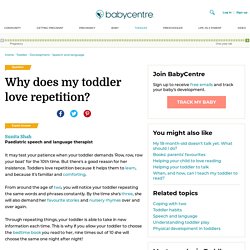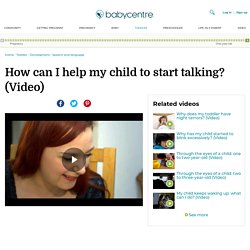

5 trikova da vaše kupatilo deluje veće - Marina ENTERIJERNICA. Mislim da većina nas koji živimo u stanovima nismo bili u situaciji da biramo mnoge stvari kada smo kupovali svoj životni prostor, a kompromis na koji smo najlakše pristajali (u odnosu na kvadraturu stana, broj spavaćih soba, veličinu dnevne sobe, orjentaciju stana,…) jeste veličina i enterijer kupatila.

Kupatila u našim stanovima u proseku nisu baš zavidne veličine, a neka su toliko mala da se čak ni mašina za veš ne može smestiti. Još kada to kupatilo nema prozor (tj prirodnu ventilaciju i prirodan izvor svetla) – to može biti jedan zaista klaustrofobičan prostor… ENTERIJER KUPATILA (pogotovo malog kupatila) je, koliko god izgledalo jednostavno, prilično teško urediti i dizajnirati. Ali, evo nekoliko trikova koje možete primeniti da od malog i klaustrofobičnog kupatila napravite prijatan “spa” prostor, u kome ćete uživati… 1. Još jedan trik je postavljanje dve vrste pločica (sličnog kolorita i paterna) u horizontalne pruge – opet na jednom, a može i na više zidova. 2. 3. 4. 5. BEBarije - Važnost poticanja intelektualnog i emocionalnog razvoja od najranije dobi. Čarobno drveće uma. Fixed vs. Growth: The Two Basic Mindsets That Shape Our Lives. “If you imagine less, less will be what you undoubtedly deserve,” Debbie Millman counseled in one of the best commencement speeches ever given, urging: “Do what you love, and don’t stop until you get what you love.
Work as hard as you can, imagine immensities…” Far from Pollyanna platitude, this advice actually reflects what modern psychology knows about how belief systems about our own abilities and potential fuel our behavior and predict our success. Much of that understanding stems from the work of Stanford psychologist Carol Dweck, synthesized in her remarkably insightful Mindset: The New Psychology of Success (public library) — an inquiry into the power of our beliefs, both conscious and unconscious, and how changing even the simplest of them can have profound impact on nearly every aspect of our lives.
Bill Gates Pens An Essay For the Class Of 2017. How Are Happiness and Learning Connected? As teachers, we also know that when students' affective filters or defenses are sky high, fight or flight responses will be modus operandi. A room full of defensive behaviors (withdrawn, angry) is a sad, unproductive place to teach and learn. Now let's flip it and take a look at how much more we are able to learn when we are in harmony with the people and things in any given educational environment. Being in harmony means feeling safe, feeling valued and a necessary part a group, and in this case, a learning community.
Key Person & Attachment - Early Years Matters. The Key Person Children thrive from a base of loving and secure relationships. This is normally provided by a child’s parents but it can also be provided by a key person. A key person is a named member of staff with responsibilities for a small group of children who helps those children in the group feel safe and cared for. Whole Child Development Is Undervalued.
The question is how to make such an approach both systemic and sustainable. Whole Person Socio-emotional, physical, creative, and cognitive capacities are deeply intertwined and equally important in ensuring a child's wellbeing, learning, and growth. (That shouldn't be a surprise to anyone studying or supporting children's learning.) Nobel laureate James Heckman, a professor of economics at the University of Chicago, has shown that the non-cognitive skills emerging in early childhood are among the strongest predictors of adult outcomes. Practical tips. By Opal Dunn, educational consultant and author Introduction Young children learn English differently from most adults.

Most have an innate ability to pick up English while taking part in activities, by making sense of what they are doing and picking up the adult’s language that accompanies the activity. You can find out more in the British Council booklet ‘How young children learn English as another language’, also available on the parents pages of the LearnEnglish Kids website.
How Are Kids Smarter Than Adults? - Video. Question: What learning capacities do we lose after childhood?

Paul Bloom: So one interesting question is, in what ways are children superior to adults? What gifts and capacities do children have that adults lack? And I think that there's two ways of answering that question that give intersecting answers. One is evolutionary, which is what would you expect a child to be good at, given that what childhood is, is a period before maturity where you get everything up to speed. The second one is, developmental psychology and observation.
Carol Dweck: The power of believing that you can improve. Inclusion Development Programme Behaviour Emotional Social Difficulties. ZERO TO THREE. Importance of play for babies & children. Play is more than just fun for babies and children.

It’s how they learn best, and how they work out who they are, how the world works and where they fit into it. You can read this article in a selection of languages other than English. The importance of play Playing is one of the most important things you can do with your child, because play is essential for your child’s brain development. The time you spend playing together gives your child lots of different ways and times to learn. Play also helps your child: build confidence feel loved, happy and safe develop social skills, language and communication learn about caring for others and the environment develop physical skills.
How young children learn English through play. As we release Learning Time with Timmy – our first app for early-years learners of English – Danitza Villarroel, a teacher on our Learning Time with Shaun and Timmy course in Chile, explains the importance of learning through play, and offers a few tips for teachers new to this age group. Teaching English to pre-school children can be daunting for teachers new to this age group. Young children have shorter attention spans than older children and adults, and they're still learning their mother tongue. But teaching these learners can be enormously rewarding once you've taken a few basic principles on board. Home. Alison Gopnik: What do babies think? Deb Roy: The birth of a word.
Listen to Your Mother. Young children face a remarkable challenge in learning to use the language of their culture. Toddlers vary widely, however, in the rate at which they learn new words.1 A team of Harvard Graduate School of Education researchers set out to ask whether and how children's language environment can impact vocabulary development. In their study of mother-child pairs from low-income families, they found that mothers who used many different words (not just many words) had toddlers with faster growth in vocabulary use. During the toddler and preschool years, most children learn to use hundreds of words, combining them into sentences and engaging in conversation with others. From previous research, we know that variation in vocabulary growth relates to child characteristics like gender, and also to parental factors. Let's Talk. What do babies need in order to learn and thrive?
One thing they need is conversation — responsive, back-and-forth communication with their parents and caregivers. This interactive engagement is like food for their developing brains, nurturing language acquisition, early literacy, school readiness, and social and emotional well-being. A dispiriting number of children don’t get that kind of brain-fueling communication, research suggests.
Why does my toddler love repetition? - BabyCentre. Paediatric speech and language therapist It may test your patience when your toddler demands 'Row, row, row your boat' for the 10th time.

But there's a good reason for her insistence. How can I help my child to start talking? (Video) - BabyCentre. Health visitor Sara Patience describes how you can help develop your child's language skills by talking and playing with her.

Show transcript Hide transcript How can I help my child to start talking? Sara: “You want this one?